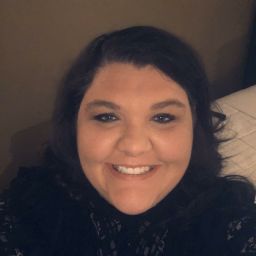Editor’s Note: Katie Venable is a high school special education teacher in rural suburb of Nashville. She has taught abroad in Istanbul, Turkey. She has an undergraduate degree in psychology from Austin Peay State University and a master’s degree in special education from Middle Tennessee State University. The views expressed here are hers. View more opinion articles on CNN.
As a high school special education teacher with a master’s degree, I make $42,000 a year in my local district. For a single person where I live, that is a decent salary – as long as you are not planning on buying a home.
Like a lot of other Americans, I also have student loans that will, in my case, either eat away at my salary by $375.83 every month until 2040, until the government pays them off (Public Service Loan Forgiveness), or until I die – whichever comes first.
My student loans are the biggest obstacle to affording a house, as they cause my debt-to-income ratio to be quite high. Most people in my field bought their homes years ago, or have married and bought their homes with a spouse or partner. Now, in my community, it is nearly impossible to buy one in my price range that does not need a lot of repairs or have other problems.

Now that I am 30 and still single, it is time for me to move out of my parents’ home. I want the American Dream of home ownership. It’s been hard for me, but the struggle doesn’t come from laziness or lack of motivation, as is often the stereotype of my generation, but from affordability.
Last year, I set a goal to move out and get my own place, even if it was just 10 minutes down the road. I paid off my car, got rid of credit card debt and began to save. I kept myself motivated by looking at houses in my area that I thought would be in my price range. In early December, the perfect house popped up: two story, three bedrooms, a new roof. This house is in my price range and has everything I wanted – it’s close to school, perfect for all those late nights grading papers and lesson planning.
I got in touch with my realtor right away and we got the plans in motion. I had gotten my paperwork in, taken the classes I needed to take, and paid the fees. All that was left were a few more things on the lender’s end, and then we would send it to the USDA to process the loan. I had chosen to use a USDA loan due to my location, great credit score (>760), and the low private mortgage insurance (PMI). There are other options, of course, but with those, I would have to pay out thousands of dollars due to high PMIs or for other variables. I’m not willing to compromise, seeing that my salary is already at a point where it will fit just right with the USDA loan’s monthly payment.
The week prior to December 22, 2018, there were talks of a government shutdown, but as an unassuming everyday American who doesn’t work for the government, I thought it would never affect me. The day after the shutdown started, I got an email from my mortgage lender, explaining how the shutdown will affect the loan that I was going to be getting. Since it was the week of Christmas, I thought the shutdown would eventually end before New Year’s, and I would be able to meet my January 18, 2019 final closing day. Now that we are over 20-something days in, my chance of finally owning a home, this particular home especially, continues to dwindle every day this shutdown continues.
Having a place to call your own is an inherent want, or usually is, for most people as they get older. I am ready for that next independent step. I did everything right – I researched, I saved, I planned – and now it feels like that dream is slowly slipping through my hands. Yes, there may be more houses out there, but this is the house I want. This is the house I have saved for. This is the house I see myself in for years to come, and maybe even starting a family in.
At this point, I am distraught about the possibility of losing my beloved house, but I realize that is not the only reason I am upset. The more and more I think about potentially losing this house, the more anger is beginning to set in. But this anger is not only for me. It’s for others also trying to get their homes and provide for their families, who have people depending on them. I have a fallback: I live with my parents, so I will be okay. What about the others who will remain nameless without their stories being told? As I approach my closing date, I cannot help but wonder how many others have passed theirs.

